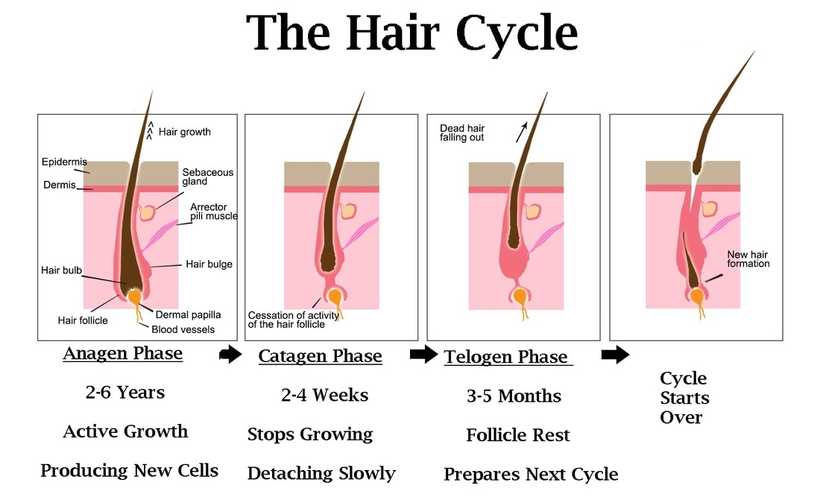Many new mothers experience the phenomenon of hair loss after giving birth. While childbirth is a blessing, it can also expose the body and mind to a lot of stress. Experiencing hair loss on top of that stress can make things even more challenging. Typically, around 90% of new mothers experience postpartum hair loss, regardless of the size of their family.

Causes of Postpartum Hair Loss
Healthy hair grows, stops growing, falls out, and then regrows. This is governed by the hair growth cycle, which consists of the anagen phase (the growth phase), the catagen phase (the transition phase where growth stops), and the telogen phase (the shedding phase), which continuously repeats.

© fresnohair.com
However, during pregnancy, there is a decrease in the proportion of hair in the catagen and telogen phases, while the proportion of hair in the anagen phase significantly increases. This shift is due to the increase in female hormones during pregnancy, which play a role in stimulating hair growth. But when these hormone levels return to normal after childbirth, the hair that hadn't fallen out during pregnancy begins to shed all at once, leading to hair loss.
Postpartum Hair Loss
Typically, postpartum hair loss begins around 2 to 4 months after giving birth and can last for 6 to 12 months. In severe cases, up to 40% to 50% of all hair may be lost. However, after about 6 months, the number of hair strands falling out gradually decreases, and new hair starts to grow. After about a year, most women will have recovered to a normal state.
Treatment for Postpartum Hair Loss
As mentioned earlier, most cases of postpartum hair loss naturally recover with adequate rest and proper nutrition following childbirth. To promote healthier hair growth, consider the following:
- Maintain a balanced diet and ensure adequate nutrition.
- Get sufficient rest and quality sleep.
- Manage stress effectively.
- Avoid hair treatments such as perms and dyes that can irritate the scalp.
- Avoid extreme diets.
If postpartum hair loss persists for more than 6 months or if the recovery is too slow, more active treatments can be considered. In such cases, it is advisable to visit a nearby hair loss clinic for examinations and consultation. If treatment is deemed necessary, procedures like follicle injections, low-level laser therapy, and hair supplements may be recommended.